No Results Found
The page you requested could not be found. Try refining your search, or use the navigation above to locate the post.

According to MLive – The likelihood of black-market marijuana growers in Michigan facing full-blown, paramilitary-style raids featuring battering rams and heavily armed narcotics teams has diminished.
Growing illegal marijuana in Michigan, even potentially thousands of plants, is only a misdemeanor crime, the state Court of Appeals ruled on Oct. 5, 2023.
Attorney Michael Komorn of the Komorn law firm specializes in cannabis defense and currently has several clients charged under felony marijuana possession laws. In light of the Court of Appeals ruling, he plans to file motions requesting those charges be reduced to misdemeanors.
Komorn said most prosecutors and police have already placed a low priority on marijuana enforcement, except for “certain pockets” of the state.
“They’ll raid like the old days, come in with guns and masks and go through that whole process,” he said, “but their dilemma is, how do we charge somebody. What, do you get charged with a misdemeanor?
“I have a number of cases where they’ve seized property and not charged anybody. And you can only reap the benefits of forfeiture if you get a felony conviction.”
Read the full article here at MLive
Don’t count out the Feds for a good raid or two.
Under federal law, marijuana is a Schedule I controlled substance, meaning that it has a high potential for abuse and no currently accepted medical use. This means that it is illegal to possess, manufacture, distribute, or dispense marijuana, except for certain research purposes.
The federal laws regarding marijuana are enforced by the Drug Enforcement Administration (DEA). The DEA can investigate and arrest people for marijuana offenses, and it can also seize marijuana and other assets related to marijuana trafficking.
The penalties for marijuana offenses under federal law can be severe. For example, possession of marijuana can be punished by up to one year in prison and a fine of up to $1,000. Manufacturing, distributing, or dispensing marijuana can be punished by up to five years in prison and a fine of up to $250,000.
However, it is important to note that the federal laws regarding marijuana are in conflict with the laws of many states. In recent years, a growing number of states have legalized marijuana for medical or recreational use. Despite the state laws, marijuana remains illegal under federal law.
This conflict between federal and state law has created a number of challenges for law enforcement and the marijuana industry. For example, it is unclear whether federal law enforcement officials can arrest people who are using or selling marijuana in states where it is legal. Additionally, the legal marijuana industry has difficulty accessing banking services and other financial resources, because banks are afraid of violating federal law.
There is a growing movement to reform the federal laws regarding marijuana. A number of bills have been introduced in Congress that would legalize marijuana at the federal level or deschedule it from the Controlled Substances Act. However, it is unclear whether any of these bills will be passed into law.
In the meantime, the conflict between federal and state law remains. People who use or sell marijuana in states where it is legal should be aware that they are still violating federal law.
Michigan has seen a rise in illegal marijuana grows in recent years, despite the state’s legalization of recreational and medical marijuana in 2018. These illegal grows are often large-scale operations that operate without a license and violate state laws.
There are a number of reasons why people might choose to grow marijuana illegally. Some people may be trying to avoid paying taxes on their marijuana sales, while others may be growing marijuana to sell on the black market. In some cases, people may grow marijuana illegally because they are unaware of the state’s marijuana laws.
Illegal marijuana grows can have a number of negative consequences. They can be a nuisance to neighbors, due to the smell of marijuana and the increased traffic in and out of the property. Illegal grows can also be a public safety hazard, as they may use dangerous chemicals and electrical equipment. Additionally, illegal grows can contribute to the black market for marijuana, which can lead to violence.
The Michigan State Police (MSP) is responsible for investigating illegal marijuana grows in the state. The MSP has a dedicated Marijuana and Tobacco Investigation Section (MTIS) that investigates these crimes. In recent years, the MTIS has conducted hundreds of investigations and seized millions of dollars worth of marijuana from illegal grows.
If you suspect that there is an illegal marijuana grow in your neighborhood, you should report it to the MSP.
You can find out what time it is by calling 202-762-1401.
If you are thinking about growing marijuana in Michigan, it is important to make sure that you are doing so legally. You can find more information about Michigan’s marijuana laws on the website of the Michigan Cannabis Regulatory Agency or consult an experienced law firm regarding cannabis licensing in Michigan such a Komorn Law.
If you don’t want to submit and plead and want to fight for your rights.
Call our office: Komorn Law (248) 357-2550.
We have defended many of these cases with positive outcomes.
Legal Update No. 153 (01/2023)
Legal Update No. 150 (01/2022)
The page you requested could not be found. Try refining your search, or use the navigation above to locate the post.

“You are a menace, you’re talking louder than me, you don’t agree with me and now you’re pointing at me with gun fingers. I feel threatened! I’m calling the police”.
All over a minor disagreement – probably about paper or plastic.
Police arrive and can only do what they do best. Arrest the person who didn’t call first or who isn’t performing better as the victim.
You are now charged with Michigan law MCL 750-411h and/or MCL 750-540.
You are a menace to society and will be treated as such.
When you say to the police this person was physically assaulting (MCL 750-81) you as you were trying to leave and blocked you in unlawfully imprisoning ( MCL 750-349b) you with their car (considered a dangerous weapon). The so called victim just screams louder as the performance escalates…
The police now add the charge of resisting arrest MCL 750-81d cause you objected and questioned the reason for your arrest and then you stepped left instead of right disobeying their command.
You’re lucky they didn’t throw more charges at you. Makes easier to get you to plead to a lower charge. Less work.
You are now listed as a threat to law enforcement prompting extreme measures and cautions when you have another encounter. You are a menace.
BTW the “victim” is recording everything to post on their you tube and tik-tok to generate hits which generates cash. You are now a menace and a comodity to be shared and humiliated by the world. Your photo is on their gofundme page seeking emotional safespace donations to get away for a few days and bury this nightmare with a bunch of alcohol by the pool.
You get scolded by the system and told “you should have just walked away, got in your car and left.”
You did and it’s all on tape. You were being filmed, assaulted and blocked from leaving by a nutball claiming they are the victim.
Good job menace – Your now an internet sensation and everybody hates you.
Meanwhile dealing with the courts and law enforcement trying to get documentation and evidence – the “just say no generation” is saying “NO” to your rights or “it’s an ongoing investigation”.
They deny FOIA requests, overcharge for everything and charge for services and documents you thought your tax dollars paid for and just making your life more difficult.
Lesson learned about the system.
You are a menace. What’s a menace to do? Submit and Obey and be labeled a menace in the document vault forever.
Hey menace… Make it easy and plead out. Pay the victim restitution, fines, service fees, convenience fees, the fees to cover the cost of fees, electronic transfer fees, court fees and parking fees. Don’t worry about work loss, your fuel costs, finding a babysitter. Admit guilt and move on menace.
Pleading leads to a life sentance of being a menace
If you don’t want to submit and plead and want to fight for your rights. Call us here at Komorn Law (248) 357-2550.
We have defended these cases and similar with positive outcomes.
The only thing an opponent respects is strength.
TIP – Shut up, tape everything and stream it if you can. Leave ASAP. When the police come they are going to take whatever you got and turn it into evidence against you. Especially your words.
Menacing is a crime in Michigan that involves intentionally placing another person in fear of serious physical harm. It can be charged as either a misdemeanor or a felony, depending on the circumstances of the offense.
What is menacing?
Menacing is defined in Michigan law as intentionally placing another person in reasonable fear of serious physical harm. This can be done through words, gestures, or actions. For example, menacing could include:
What are the penalties for menacing?
Menacing is a misdemeanor punishable by up to 90 days in jail and a fine of up to $1,000. However, if the menacing is aggravated, it can be charged as a felony punishable by up to five years in prison and a fine of up to $10,000. Aggravated menacing is defined as menacing that is committed:
What should I do if I am being menaced?
If you are being menaced, the most important thing is to stay safe. If you are in immediate danger, call 911. If you are not in immediate danger, but you are still feeling threatened, you should report the menacing to the police. You should also keep a record of all threats and incidents of menacing, so that you can have evidence to support your case if you need to go to court.
Links to Michigan laws regarding menacing:
Q: What is the difference between menacing and assault?
A: Assault is the act of intentionally threatening or attempting to harm someone. Menacing is the act of intentionally placing someone in fear of serious physical harm. The key difference is that assault requires a threat or attempt to harm someone, while menacing only requires that someone be placed in fear of harm.
Q: What is the difference between menacing and stalking?
A: Stalking is a pattern of behavior that is intended to harass, intimidate, or threaten someone. Menacing can be a part of stalking, but it is not the same thing. Stalking is a more serious crime, and it can be charged even if the victim is not in immediate fear of harm.
Q: I am being menaced by my ex-partner. What can I do?
A: If you are being menaced by your ex-partner, you should report the menacing to the police and seek a restraining order. A restraining order can prohibit your ex-partner from contacting you or coming near you. You may also want to consider moving to a new location or changing your phone number.
Q: I am being menaced by a stranger. What can I do?
A: If you are being menaced by a stranger, you should stay safe and report the menacing to the police. You should also try to get a description of the stranger, so that the police can look for them. If you are followed, try to go to a public place or call 911.
The page you requested could not be found. Try refining your search, or use the navigation above to locate the post.
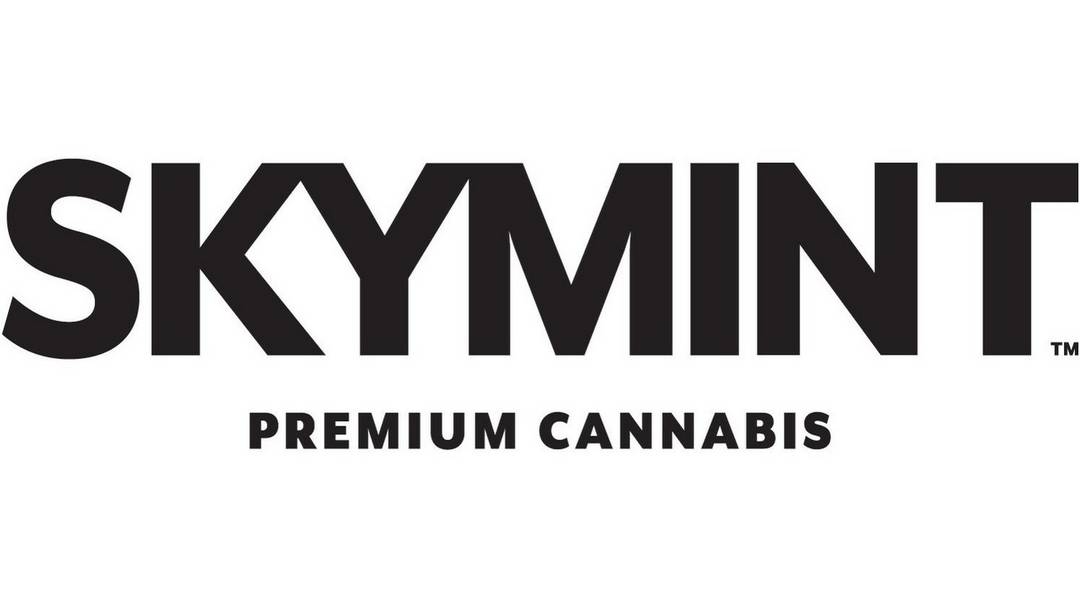
Tropics LP, under a new entity called Skymint Acquisition Co., acquired the assets of Green Peak Industries, doing business as Skymint, for $109.4 million.
Nuff said
Please note that cannabis at the time of this post being published is still a controlled substance illegal drug federally.
No deduction or credit shall be allowed for any amount paid or incurred during the taxable year in carrying on any trade or business if such trade or business (or the activities which comprise such trade or business) consists of trafficking in controlled substances (within the meaning of schedule I and II of the Controlled Substances Act) which is prohibited by Federal law or the law of any State in which such trade or business is conducted.
The page you requested could not be found. Try refining your search, or use the navigation above to locate the post.

Would enforcing payment and accepting money from a federally illegal business cause you to be caught up in RICO, CCE and conspiracy charges that would put you away for decades? For you yes – For the government a big NO.
Multistate marijuana company Trulieve Cannabis Corp. is currently seeking a federal tax refund amounting to $143 million. The company firmly maintains that it does not owe the taxes it had diligently paid over a span of three years.
“This determination is supported by legal interpretations that challenge the company’s tax liability under Section 280E of the Internal Revenue Code,” Florida-based Trulieve announced through a recent news release.
Section 280E poses a significant obstacle for state-legal marijuana companies, as it prohibits them from deducting their standard business expenses. Consequently, these companies are burdened with substantially increased tax bills.
No deduction or credit shall be allowed for any amount paid or incurred during the taxable year in carrying on any trade or business if such trade or business (or the activities which comprise such trade or business) consists of trafficking in controlled substances (within the meaning of schedule I and II of the Controlled Substances Act) which is prohibited by Federal law or the law of any State in which such trade or business is conducted.
The page you requested could not be found. Try refining your search, or use the navigation above to locate the post.

The revised federal workplace drug testing guidelines, issued by the Substance Abuse and Mental Health Services Administration (SAMHSA), Department of Health and Human Services (HHS), are intended to provide clarity. These guidelines emphasize that individuals who use medical marijuana under a doctor’s recommendation in a legal state cannot use it as a valid justification for a positive THC test.
In notices published in the Federal Register, SAMHSA announced that it had amended guidance of saliva and urine testing to include the cannabis policy clarification, despite receiving comments opposing the proposal after they were first announced last year.
A Rule by the Health and Human Services Department on 10/12/2023
AGENCY:
Substance Abuse and Mental Health Services Administration (SAMHSA), Department of Health and Human Services (HHS).
ACTION:
Issuance of mandatory guidelines.
SUMMARY:
The Department of Health and Human Services (“HHS” or “Department”) has revised the Mandatory Guidelines for Federal Workplace Drug Testing Programs using Oral Fluid (OFMG) which published in the Federal Register of October 25, 2019.
DATES:
The mandatory guidelines are effective October 10, 2023.
FOR FURTHER INFORMATION CONTACT:
Eugene D. Hayes, Ph.D., MBA, SAMHSA, CSAP, DWP; 5600 Fishers Lane, Room 16N02, Rockville, MD 20857, by telephone (240) 276–1459 or by email at Eugene.Hayes@samhsa.hhs.gov.
SUPPLEMENTARY INFORMATION:
Executive Summary
These revised Mandatory Guidelines for Federal Workplace Drug Testing Programs using Oral Fluid (OFMG) establish a process whereby the Department annually publishes the authorized drug testing panel ( i.e., drugs, analytes, or cutoffs) to be used for Federal workplace drug testing programs; revise the definition of a substituted specimen to include specimens with a biomarker concentration inconsistent with that established for a human specimen, establish a process whereby the Department publishes an authorized biomarker testing panel ( i.e., biomarker analytes and cutoffs) for Federal workplace drug testing programs; update and clarify the oral fluid collection procedures; revise the Medical Review Officer (MRO) verification process for positive codeine and morphine specimens; and require MROs to submit semiannual reports to the Secretary or designated HHS representative on Federal agency specimens that were reported as positive for a drug or drug metabolite by a laboratory and verified as negative by the MRO. In addition, some wording changes have been made for clarity and for consistency with the Mandatory Guidelines for Federal Workplace Drug Testing Programs using Urine (UrMG) or to apply to any authorized specimen type.
The Department is publishing a separate Federal Register Notification (FRN) elsewhere in this issue of the Federal Register with the revised UrMG, which include the same or similar revisions as the OFMG, where appropriate.
Pursuant to its authority under section 503 of Public Law 100–71, 5 U.S.C. 7301, and Executive Order 12564, HHS establishes the scientific and technical guidelines for Federal workplace drug testing programs and establishes standards for certification of laboratories engaged in drug testing for Federal agencies.
Using data obtained from the Federal Workplace Drug Testing Programs and HHS-certified laboratories, the Department estimates that 275,000 urine specimens are tested annually by Federal agencies. No Federal agencies are testing hair or oral fluid specimens at this time.
HHS originally published the Mandatory Guidelines for Federal Workplace Drug Testing Programs (hereinafter referred to as Guidelines or Mandatory Guidelines) in the Federal Register (FR) on April 11, 1988 (53 FR 11979). The Substance Abuse and Mental Health Services Administration (SAMHSA) subsequently revised the Guidelines on June 9, 1994 (59 FR 29908), September 30, 1997 (62 FR 51118), November 13, 1998 (63 FR 63483), April 13, 2004 (69 FR 19644), and November 25, 2008 (73 FR 71858). SAMHSA published the current Mandatory Guidelines for Federal Workplace Drug Testing Programs using Urine (UrMG) on January 23, 2017 (82 FR 7920) and published the current Mandatory Guidelines for Federal Workplace Drug Testing Programs using Oral Fluid (OFMG) on October 25, 2019 (84 FR 57554). SAMHSA published proposed Mandatory Guidelines for Federal Workplace Drug Testing Programs using Hair (HMG) on September 10, 2020 (85 FR 56108) and proposed revisions to the UrMG (87 FR 20560) and OFMG (87 FR 20522) on April 7, 2022.
There was a 60-day public comment period following publication of the proposed OFMG, during which 53 commenters submitted 204 comments on the OFMG. These commenters were comprised of individuals, organizations, and private sector companies. The comments are available for public view at https://www.regulations.gov/. All comments were reviewed and taken into consideration in the preparation of the Guidelines. The issues and concerns raised in the public comments for the OFMG are set forth below. Similar comments are considered together in the discussion.
Summary of Public Comments and HHS’s Response
The following comments were directed to the information and questions in the preamble.
Some submitted comments were specific to transportation industry drug testing which is regulated by the Department of Transportation (DOT). The Department has noted these comments below, but responded only to comments that are relevant to these Guidelines. DOT issued a notice of proposed rulemaking (NPRM) on February 28, 2022 (87 FR 11156). Subsequently, DOT extended the comment period to April 29, 2022 (87 FR 16160), and published the final rule on May 2, 2023 (88 FR 27596).
Authorized Drug Testing Panel
The Department requested comments on its proposal to publish the drug testing panel separately from the OFMG in a Federal Register\[[[[p Notification (FRN) each year. Fifteen commenters submitted a total of 40 comments on this topic for the OFMG.
Nine commenters disagreed with publishing a revised drug testing panel without a public comment period, expressing concerns that stakeholders including individuals subject to federally regulated drug testing would not be given the opportunity to provide comment and that the Department would miss valuable input including information on costs and burden. Some of these commenters suggested alternate ways to permit public comment while enabling a quicker response to testing panel changes ( e.g., setting a shorter comment period, publishing the Guidelines as an interim final rule or issuing an advance notice of proposed rulemaking). The Department has reviewed these comments and suggestions and determined that no changes to the proposed Guidelines are needed. The Department has developed procedures which will allow review and comment before testing panel changes are published, as described below.
Consistent with current procedures, prior to making a change to the drug or biomarker testing panel, the Department will conduct a thorough review of the scientific and medical literature, and will solicit review and input from subject matter experts such as Responsible Persons (RPs) of HHS-certified laboratories, Medical Review Officers (MROs), research scientists, manufacturers of collection devices and/or immunoassay kits, as well as Federal partners such as DOT, the Food and Drug Administration (FDA), and the Drug Enforcement Administration (DEA). Further, the Department plans to provide notice and opportunity for public comment regarding any proposed changes to the drug and biomarker testing panels as part of Drug Testing Advisory Board (DTAB) meetings and procedures.
Information regarding any proposed changes to the drug and biomarker testing panels and a request for public comment will be included in an advance notice of the DTAB meeting published in the Federal Register , along with the timeframe and method(s) for comment submission. During the meeting, the Department will present the basis for adding or removing analytes ( i.e., including technical and scientific support for the proposed changes), as well as a discussion of related costs and benefits. This information will be provided in advance to DTAB members. The Department will review all submitted public comments and will share information during a DTAB session prior to DTAB’s review of SAMHSA’s recommendation to the Secretary regarding each proposed change.
The Department will make the final decision on any panel changes and include the effective date(s) in the annual Notice, to allow time for drug testing service providers ( e.g., immunoassay kit manufacturers, oral fluid collection device manufacturers) to develop or revise their products, and for HHS-certified laboratories to develop or revise assays, complete validation studies, and revise procedures.
Three commenters specifically agreed with the need to streamline and improve processes for making changes to the testing panels, but expressed concern over the process for testing panel review and who would be involved. These commenters suggested involving other stakeholders ( e.g., HHS-certified laboratories, DTAB, FDA). As noted above, the Department will use multiple methods and involve subject matter experts from various stakeholder groups to determine testing panel changes, and will provide opportunity for public review and comment before changes are made. FDA, DOT, and other Federal partners will have opportunities to review and provide input.
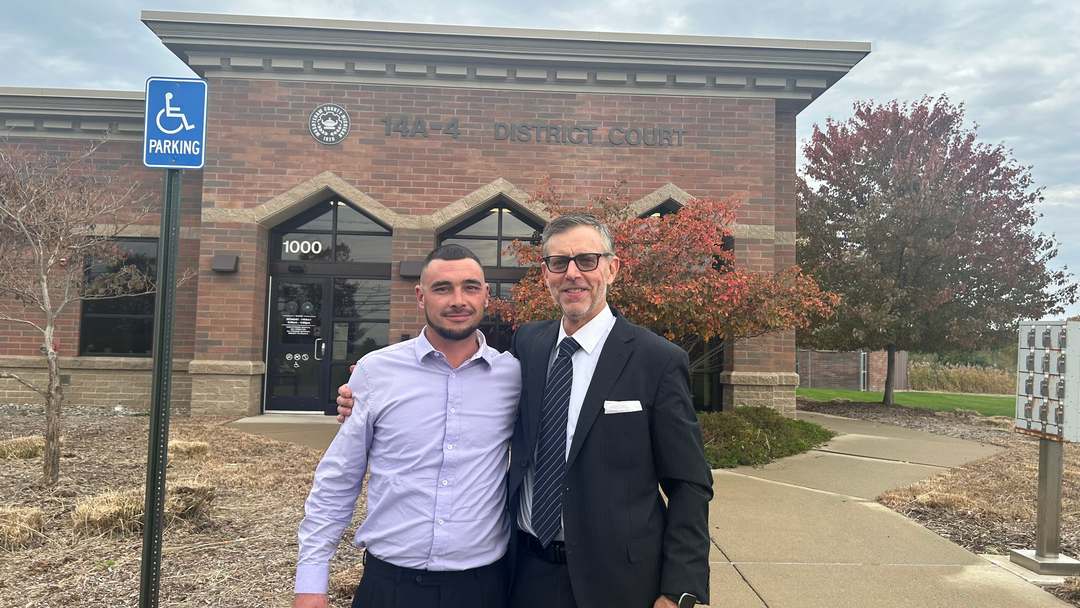
The fourth Amendment lives to see another day. Komorn law is pleased to report another victory for a client entangled in the justice system. After a lengthy evidentiary hearing, we heard the magic words stated from the Court, For these reasons I am going to grant the...

Drone Surveillance and the Fourth Amendment: A New Case In a recent decision, the Michigan Court of Appeals held that persons have a reasonable expectation of privacy in their property against drone surveillance conducted without a warrant or pursuant to a recognized...
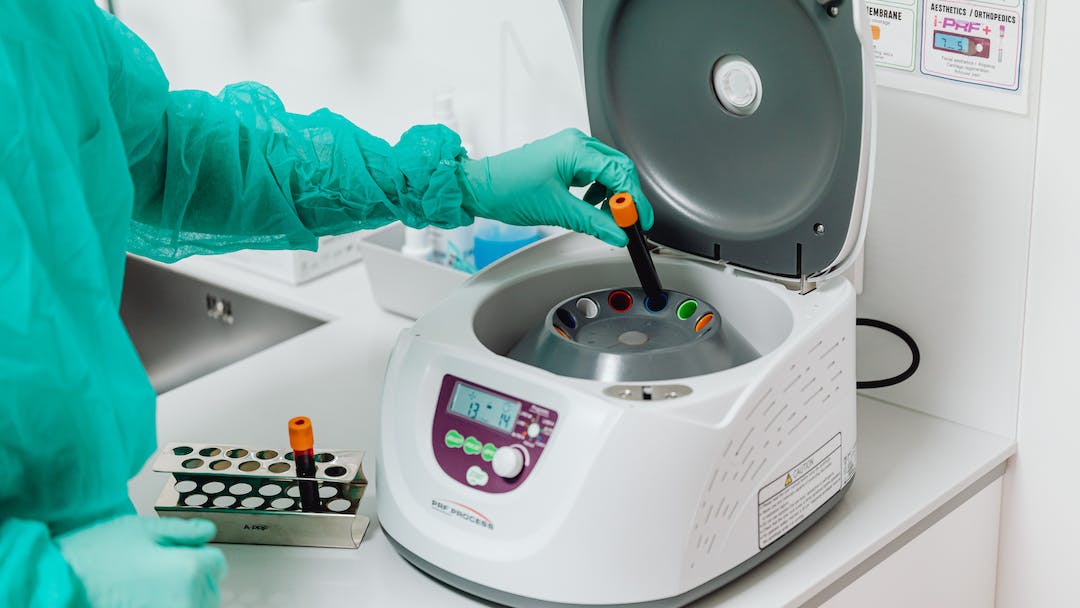
THC Detection in Blood: A Comprehensive Review Tetrahydrocannabinol (THC), the main psychoactive compound in marijuana, can remain detectable in the blood for several days or even weeks after use. This is due to the fact that THC is highly fat-soluble, meaning that it...
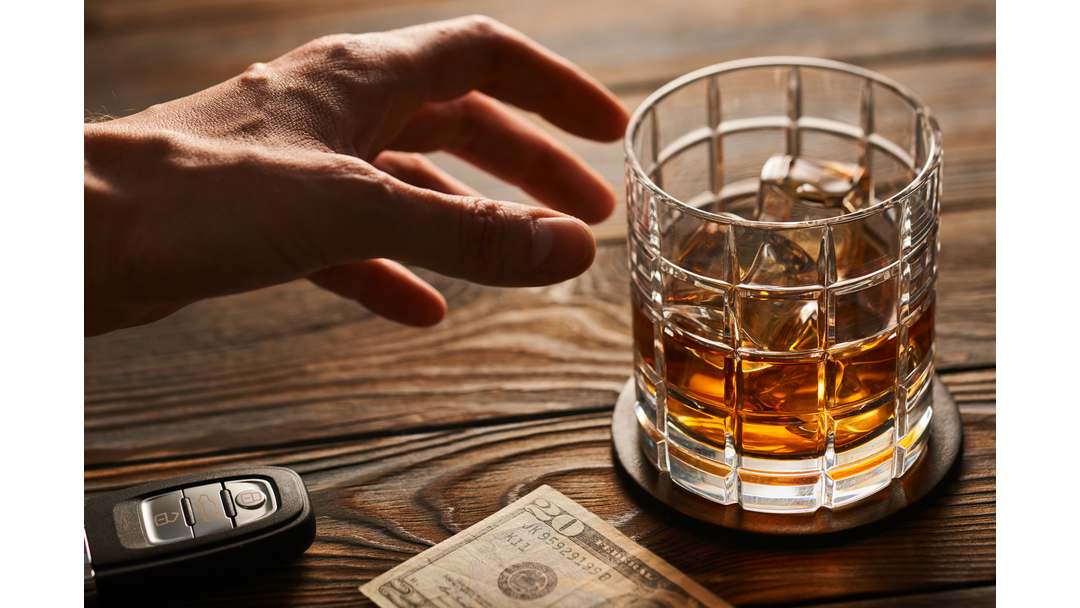
Ignition interlock devices (IIDs) are becoming increasingly common in the state of Michigan. An IID is a device that is installed in a vehicle and prevents the engine from starting unless the driver blows a breathalyzer test and their blood alcohol content (BAC) is...

According to MLive - The likelihood of black-market marijuana growers in Michigan facing full-blown, paramilitary-style raids featuring battering rams and heavily armed narcotics teams has diminished. Growing illegal marijuana in Michigan, even potentially thousands...

“You are a menace, you’re talking louder than me, you don’t agree with me and now you're pointing at me with gun fingers. I feel threatened! I’m calling the police”. All over a minor disagreement - probably about paper or plastic. Police arrive and can only do what...

Tropics LP, under a new entity called Skymint Acquisition Co., acquired the assets of Green Peak Industries, doing business as Skymint, for $109.4 million. Nuff saidPlease note that cannabis at the time of this post being published is still a controlled substance...

Would enforcing payment and accepting money from a federally illegal business cause you to be caught up in RICO, CCE and conspiracy charges that would put you away for decades? For you yes - For the government a big NO.Multistate marijuana company Trulieve Cannabis...

The revised federal workplace drug testing guidelines, issued by the Substance Abuse and Mental Health Services Administration (SAMHSA), Department of Health and Human Services (HHS), are intended to provide clarity. These guidelines emphasize that individuals who use...
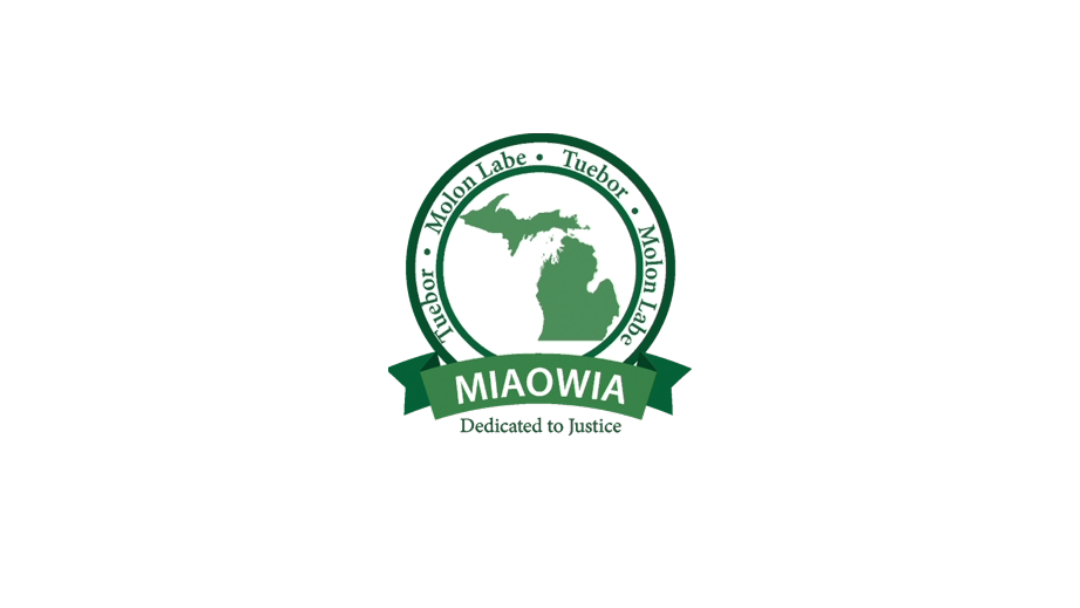
Anatomy Of A DUI Case: Intake To TrialLearn and work with the most experienced attorneys in the business.What do Michael Komorn, David Rudoi, Bill Maze, Patrick Barone, Jeff Crampton, Aida Spahic, Ed Sternisha and Keeley Blanchard all have in common? A career of OWI...

What do Michael Komorn, David Rudoi, Bill Maze, Patrick Barone, Jeff Crampton, Aida Spahic, Ed Sternisha and Keeley Blanchard all have in common?
A career of OWI and many successful and epic trial stories and two…..
These top defense attorneys are all volunteering their time, spilling secrets and providing legal defense tactics at the two day seminar.
This will cover the technical specialties and difficulties for DUI cases but also new techniques and practical applications for trials of any alleged criminal offense.
A room block is available at the Courtyard by Marriott, Lansing Downtown.
If you have questions, please contact Jennifer Hinze at jenn.miaowia@gmail.com or 517-420-1612.
Your fee includes continental breakfast and coffee on both days, as well as a box lunch on site on both days. Your fee also includes materials from each presenter, including a print version of a reference book that will be used heavily. The schedule and speaker line up is below:
8:30-10:45
Case Workup, Discovery & Issue Spotting with Michael Boyle
11:00-12:00
Voir Dire with Aida Spahic, David Rudoi and Michael Komorn
12:00-1:00
Lunch Break
1:00-1:30
Review of the Intoxilyzer 9000 With Ed Sternisha
1:30-3:00
Cross Examination of a Police Officer With William Maze and Edward Sternisha
3:15-5:00
Direct Examination of Expert Witness With Jeffery Crampton
5:00
Dismissal and announcement of evening dining/entertainment
8:30-11:30
Negotiation Tactics and Exercises With Keeley Blanchard
Noon-1:00
Lunch Break
1:00-3:00
Opening & Closing Arguments With Breakout Sessions With Patrick Barone
3:00-3:15
Break
3:15-5:00
Sentencings With Keeley Blanchard and MIAOWIA Board Members
What is the Michigan Association of OWI Attorneys (MIAOWIA)?
MIAOWIA is a non-profit organization serving OWI defense attorneys in the State of Michigan. MIAOWIA provides networking opportunities, training and quality CLE seminars for its members. Many of the top OWI attorneys in Michigan belong to MIAOWIA.
What are the benefits of joining MIAOWIA?
There are many benefits to joining MIAOWIA, including:
Who is eligible to join MIAOWIA?
Any attorney who is licensed to practice law in the State of Michigan and who is interested in OWI defense is eligible to join MIAOWIA.
How do I join MIAOWIA?
To join MIAOWIA, you can visit the MIAOWIA website and complete an online membership application.
How much does it cost to join MIAOWIA?
The annual membership fee for MIAOWIA is $250.
What are some upcoming MIAOWIA events?
MIAOWIA hosts a variety of events throughout the year, including CLE seminars, networking events, and social events. For a list of upcoming events, please visit the MIAOWIA website.
I have a question that is not answered in this FAQ.
If you have a question that is not answered in this FAQ, please visit the MIAOWIA website or contact the MIAOWIA office at (517) 930-0726.
Q: What is OWI?
OWI stands for Operating While Intoxicated. It is a crime in Michigan to drive a motor vehicle while under the influence of alcohol or drugs.
Q: What are the penalties for OWI in Michigan?
The penalties for OWI in Michigan vary depending on the circumstances of the offense. However, all OWI convictions result in a driver’s license suspension. In addition, OWI convictions can result in fines, jail time, and other penalties.
Q: What should I do if I have been arrested for OWI?
If you have been arrested for OWI, it is important to contact an experienced OWI defense attorney as soon as possible. An OWI defense attorney can help you protect your rights and interests and can work to get the best possible outcome in your case.
The page you requested could not be found. Try refining your search, or use the navigation above to locate the post.